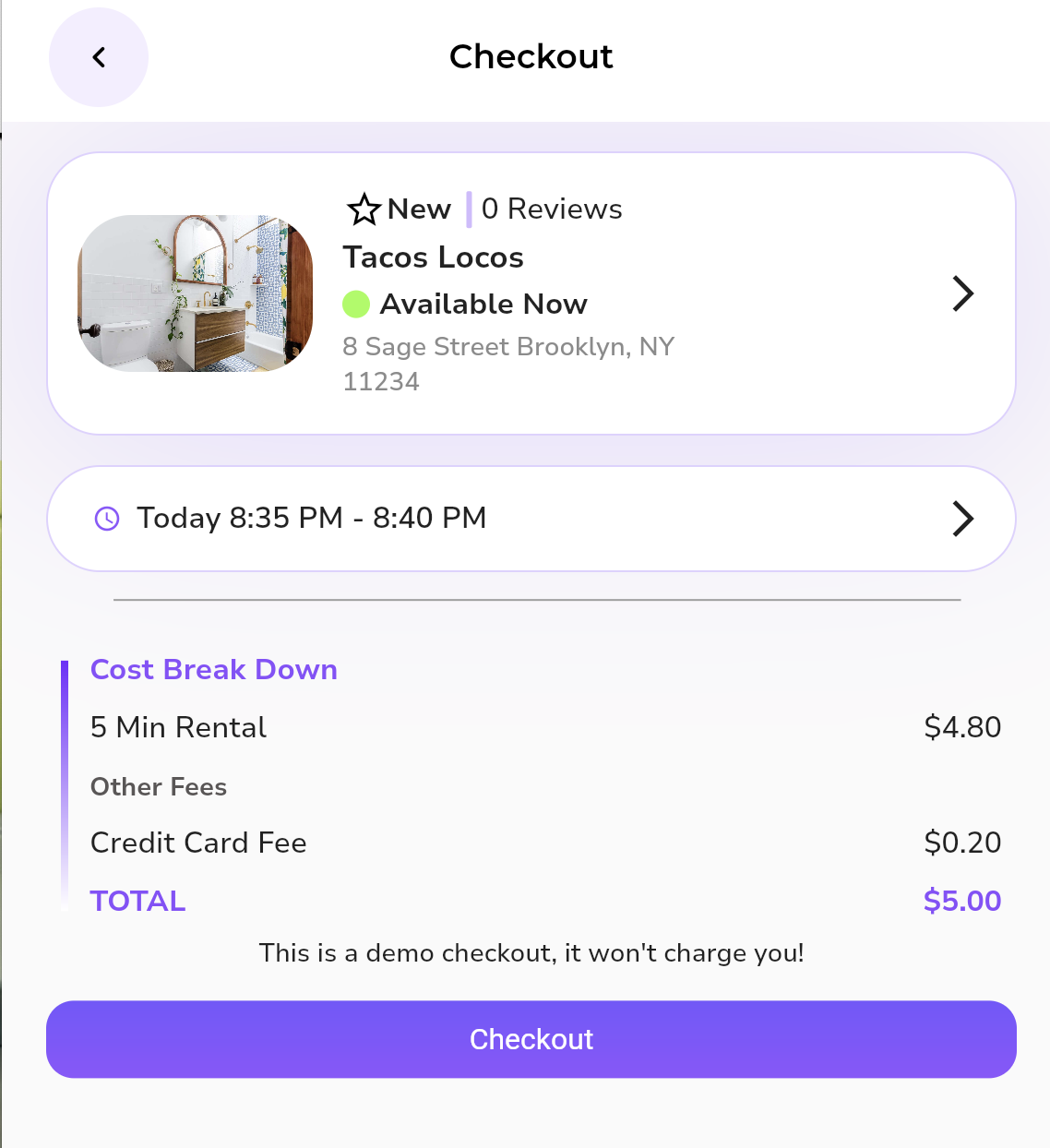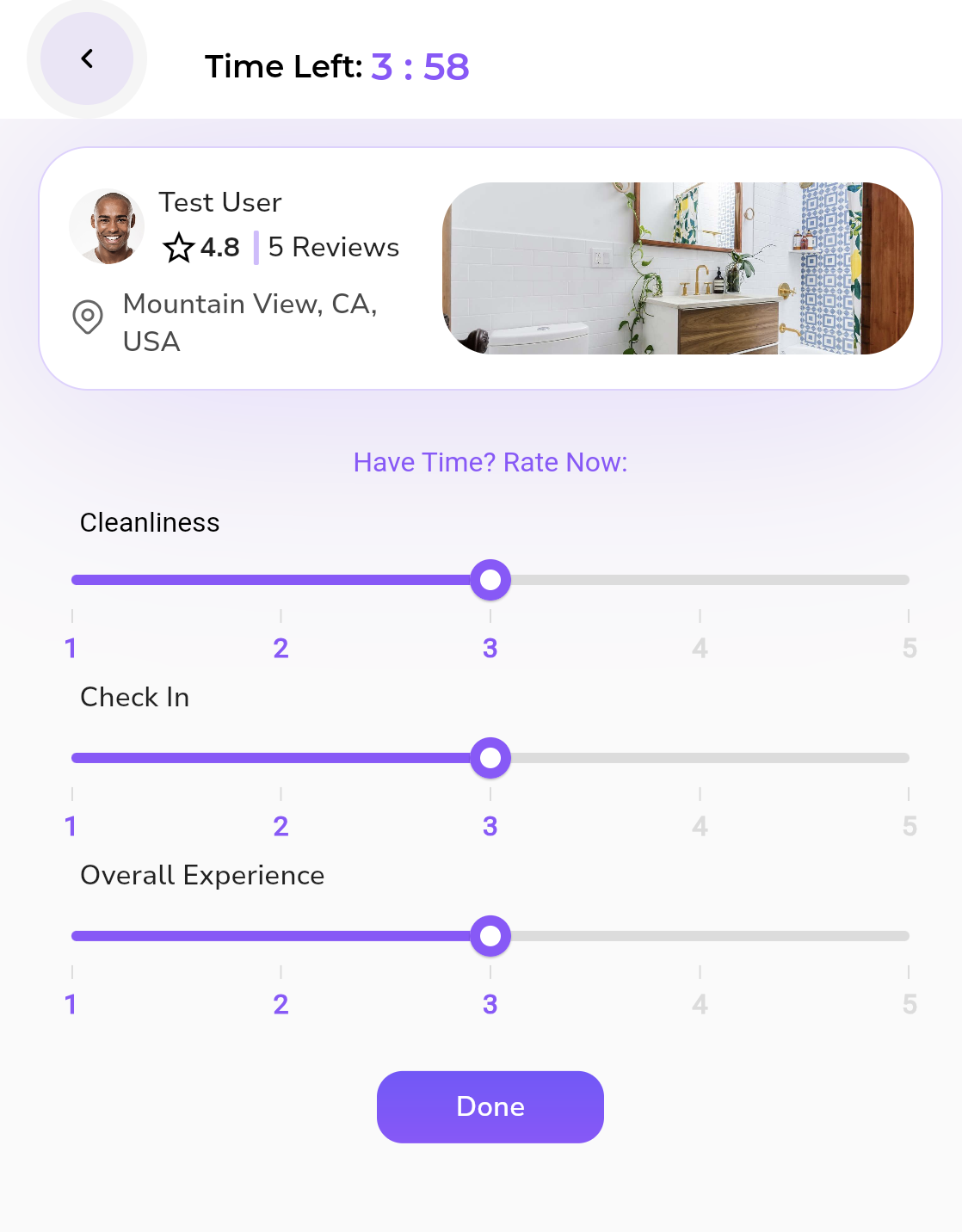This app lets restaurants and coffee shops charge to use the bathroom
Thanks to bans on pay toilets dating back to the 1970s, folks in the U.S. have become accustomed to enjoying free public restroom access pretty much anywhere their travels take them. Depending on the town or city, however, free-use bathrooms aren’t necessarily plentiful — or well-maintained, for that matter.
In lieu of stateside political momentum to build more — and better — public toilets, enterprising developers and entrepreneurs have attempted to tackle the problem in a number of ways. Beyond maps that track the locations of public restrooms, startups like Throne are deploying high-tech, self-cleaning and self-contained portable toilets that can be reserved through a mobile app.
But what about opening up the many, many business-owned bathrooms that already exist?
A new venture launching at CES 2024, Flush, wants to do just that — renting out restrooms to customers across cafés, restaurants, hotels and other high-traffic areas. USC computer science graduate Elle Szabo founded Flush after frustrating experiences trying to find public restrooms while on a diuretic medication.
“I’ll never forget the day I went out for a big dinner and we all piled into the car to go hang out in Pasadena, where I knew there’d be no open bathrooms,” Szabo told TechCrunch in an email interview. “We’d been driving for a couple minutes when I had to force the car to stop at the nearest building — which in this case was a hospital! If being on this medication was a problem for me, I wondered how many other people it was a problem for.”
Flush is a double-sided marketplace for bathrooms, basically. Business owners can put their bathrooms up for rent, priced at a maximum of $10, and users can find and book available bathrooms through Flush’s web-based app. Flush plans to take — but isn’t currently taking — a cut of reservations.
To combat bathroom-soiling guests, Flush has a built-in rating system, which providers see when they’re approving a restroom reservation. (One hopes there are measures to prevent abuse; Szabo didn’t say.) Flush is also exploring some form of insurance to compensate businesses in the event of guest-caused damage, for example a major plumbing issue.

Image Credits: Flush
“By using Flush, a coffee shop or café can create an additional revenue stream without increasing overhead,” Szabo said. “On top of the added revenue stream, Flush provides a unique means for attracting new customers without any extra marketing.”
Szabo is quite gung ho about the idea, proclaiming Flush could someday “fix the distribution of bathrooms to people.” But outside of buying coffee as a courtesy, I’m not convinced the average person would entertain paying $5 to use the bathroom, even in an emergency.
Speaking as someone who didn’t grow up in a country where paying for the toilet’s the norm, it’d be a tough mental adjustment to make. Even Europeans might balk — fee-based toilets in countries like Italy tend to be a lot cheaper (around a euro or so) than what Flush is currently asking.
Now, to be fair, there are some situations — say a diaper change — where I could imagine a customer being able to justify Flush’s fee, particularly if there aren’t any other viable nearby options. And Szabo envisions businesses creating Flush-exclusive entrances that let customers bypass lines and cover charges (imagine a busy bar or club), which admittedly has some appeal.
But the rent-a-restroom idea has been tried before — and not been met with wild success, exactly.
Good2Go, much like Flush, once partnered with local businesses to rent out their bathrooms, charging a subscription fee that it split with owners. Despite securing early high-profile customers like Peet’s Coffee and raising a $7 million seed funding round, Good2Go — which also used to work with businesses to renovate restrooms — eventually pivoted to selling general door access control tech after failing to make the economics work.
Restpace, another bathroom rental service, is still alive and kicking. But it charges on a per-minute use basis (e.g. $15 for 15 minutes), a potentially more lucrative business model than Flush’s.
Even if Flush, which is launching in Pittsburgh to start, where Szabo’s based, catches on, I’d think it’d eventually become tough for businesses to handle the logistics of figuring out who’s purchased access to which bathroom — and which customer’s next in queue. Flush is considering purchasing smart locks to let users self-service, but Szabo hasn’t committed to that idea yet.
The elephant in the room is the harm platforms like Flush might do to those who can’t afford to pay the fee.

Image Credits: Flush
Some might argue it’s incumbent on governments, not businesses, to build and service more public restrooms — and this writer doesn’t disagree. But given that there doesn’t appear to be much appetite for that sort of infrastructure spending, privately owned restrooms have become a vital resource for homeless populations who’d otherwise be forced to urinate or defecate in the street.
Szabo doesn’t see it that way, though.
“Homelessness is a growing problem, and some providers worry that a homeless person may destroy or soil the bathroom,” she said. “Flush provides a way to access and provide access to a clean, reliable bathroom … Airbnb was so successful because it provides something we all need — a roof over our heads — and Flush is doing the same for bathrooms.”
Flush, which Szabo is running and coding by herself, is currently bootstrapped. It’s in the process of signing up businesses and lining up investors (hence the media tour at CES), and plans to hire an employee this year.



